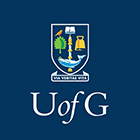- News and articles
- Find usIDP AustraliaIDP BahrainIDP BangladeshIDP CambodiaIDP CanadaIDP ChinaIDP EgyptIDP GhanaIDP Hong KongIDP IndiaIDP IndonesiaIDP IranIDP JordanIDP KenyaIDP KoreaIDP KuwaitIDP LebanonIDP MalaysiaIDP MauritiusIDP Middle EastIDP NepalIDP New ZealandIDP NigeriaIDP OmanIDP PakistanIDP PhilippinesIDP Saudi ArabiaIDP SingaporeIDP Sri LankaIDP Taiwan, ChinaIDP ThailandIDP TurkeyIDP UAEIDP VietnamIDP Corporate
- Social
- English
- Where we operate
- Courses
- Scholarships
- IELTS
- About IDP
- Student Essentials
- News and articles
- Find us
- Find us
- Find nearest IDP offices
- IDP Australia
- IDP Bahrain
- IDP Bangladesh
- IDP Cambodia
- IDP Canada
- IDP China
- IDP Egypt
- IDP Ghana
- IDP Hong Kong
- IDP India
- IDP Indonesia
- IDP Iran
- IDP Jordan
- IDP Kenya
- IDP Korea
- IDP Kuwait
- IDP Lebanon
- IDP Malaysia
- IDP Mauritius
- IDP Middle East
- IDP Nepal
- IDP New Zealand
- IDP Nigeria
- IDP Oman
- IDP Pakistan
- IDP Philippines
- IDP Saudi Arabia
- IDP Singapore
- IDP Sri Lanka
- IDP Taiwan, China
- IDP Thailand
- IDP Turkey
- IDP UAE
- IDP Vietnam
- IDP Corporate
- Social
- Language Switcher
- IDP Education /
- Colleges and Universities /
- United Kingdom /
- University of Glasgow /
- MEd Inclusive Education - R...


Location
United Kingdom
Qualification
Masters Degree (Taught)
Fees
GBP25290
(2025)
Duration
1 Year(s)
Next intake
22 September 2025
Entry Score
6.5
IELTSCourse info
This programme has been developed to encourage practitioners to develop and deepen their knowledge and experience in the area of inclusive education by critically engaging with research, policy and practice. Our courses will support learners to critically engage with the concepts of Special and Inclusive Education, Additional Support for Learning (ASL), Special Educational Needs (SEN) with a view to develop practitioners who are committed to the development of equitable and socially just education contexts.
Our research-informed courses cover topics such as disability, autism, behavior, labelling, gifted and talented, dyslexia, inclusive pedagogy, curriculum, Universal Design for Learning, equity and educational disadvantage.The award recognises the enhanced, significant, sustained and reflective enquiry you have undertaken, and the development of your professional learning in a particular area. The learning processes are intended to assisting practitioners to gain confidence in their ability to create positive, inclusive environments for learners in current, rapidly changing educational contexts. The programme has been designed to meet the needs of national and international practitioners who can complete their degrees as full-time or part-time students. You can tailor research projects to provide the maximum relevance and benefit to your interests and work.
Courses are delivered through a combination of lecture and seminar sessions which encourage practitioners to reflect on their experiences and to critically engage with theory, research, policy and practice. The diverse student population (home and international students who are class teachers from early years to secondary level, special education professionals, head teachers, education administrators, Higher Education lecturers) creates rich learning environments where we aim to create an inclusive ethos, in which collaboration, peer and active learning play a key role.
- Scholarships View all scholarships
- Internships
Entry requirements for University of Glasgow
Application Deadline
The application deadline isn't available Speak to an IDP counsellor for more detailed information
Further information
If you aren't eligible for the above entry requirements, you might ant to explore pathway options at University of Glasgow. If you want to find out more, speak to our counsellors.
THE World Ranking
87th / 1250
THE World RankingWhat our students think
We’ve haven’t received any reviews for this institution yet.
Recommended for you
- THE World Ranking:1001
- Graduate Certificate
- Luton , United Kingdom
- Next intake:09/2025
- Entry Score: IELTS 6.0
- GBP0 (2025)
- THE World Ranking:1001
- Graduate Certificate
- Bedford , United Kingdom
- Next intake:09/2025
- Entry Score: IELTS 6.0
- 0 (2025)
- THE World Ranking:1001
- Graduate Certificate
- Bedford , United Kingdom
- Next intake:09/2025
- 0 (2025)
- THE World Ranking:601
- Graduate Certificate
- Bristol , United Kingdom
- Next intake:09/2025
- Entry Score: IELTS 7.0
- GBP0 (2025)
- THE World Ranking:601
- Graduate Certificate
- Bristol , United Kingdom
- Next intake:09/2025
- GBP0 (2025)
- THE World Ranking:501
- Masters Degree (Research)
- Keele , United Kingdom
- Next intake:09/2025
- 0 (2025)
- THE World Ranking:501
- Masters Degree (Taught)
- Online , United Kingdom
- Next intake:10/2025
- GBP0 (2025)
- THE World Ranking:601
- Graduate Certificate
- Bristol , United Kingdom
- Next intake:09/2025
- GBP0 (2025)
Your action plan
Step 1
Shortlist your courses
Choose the best three courses you’re most likely to pursue.
Step 2
Check your eligibility
Get an instant in-principle offer for courses with the IDP FastLane tag.
Step 3
Apply through IDP Live
Fill out the form once and use it to apply to multiple courses.
How does IDP FastLane work?
With the FastLane 'Offer in Principle', you'll know in minutes if you'll be accepted!
Select an institution and course
Create your academic profile
Submit your application for an 'Offer in Principle'
Your chosen institution(s) will send you a decision in minutes!
Get ready to apply with an expert counsellor




